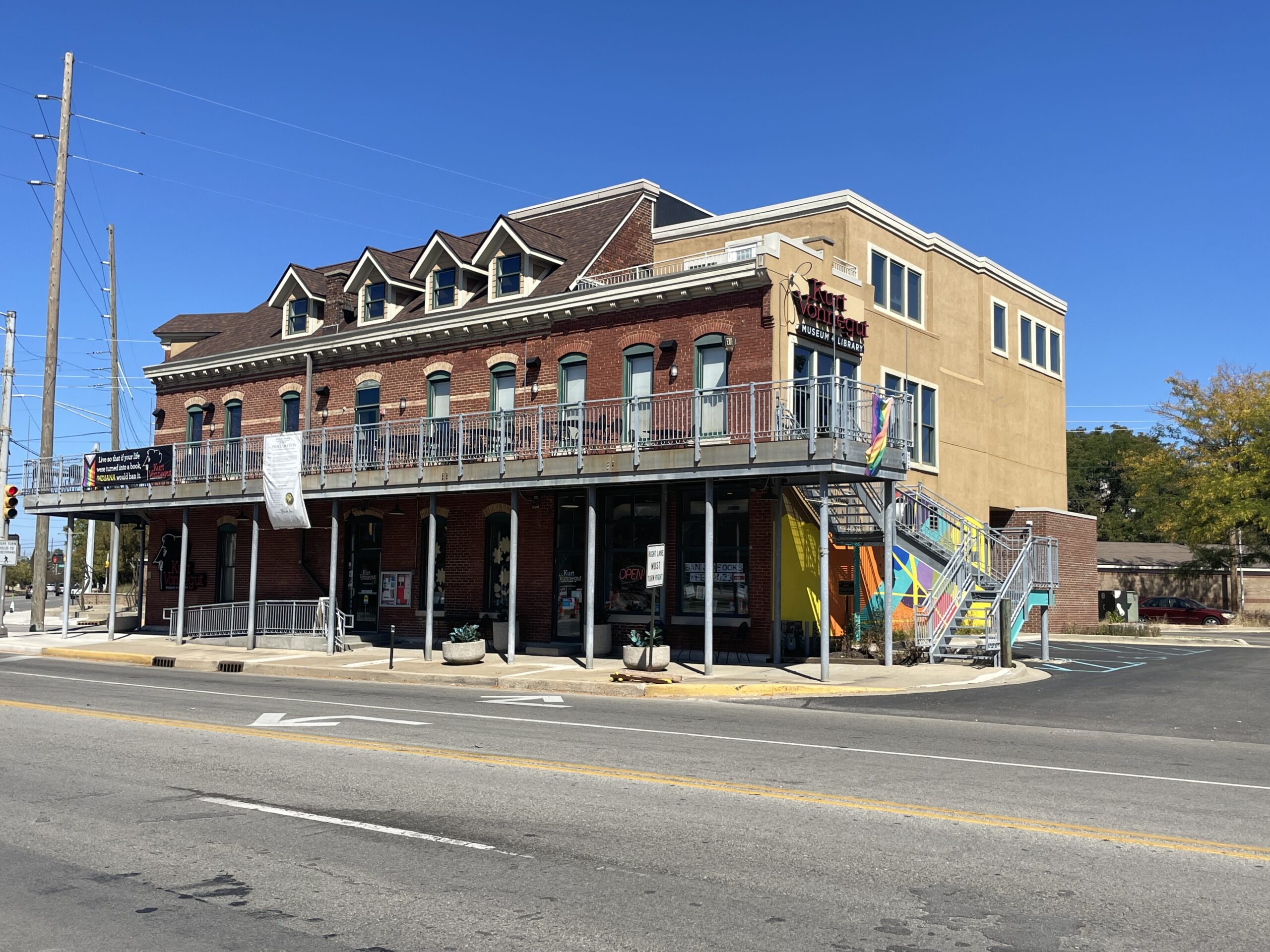The Kurt Vonnegut Museum works to bring awareness to the dangers of book banning through their Banned Book Week events including interactive discussions, open mic talks with authors and book release parties. Photo by Megan Fuller.
ELLE ROTTER | STAFF REPORTER | earotter@butler.edu
Banned Book Week is a nationally recognized week that fights for free speech and access to information.
Banned Book Week is held from Oct. 1 through Oct. 7, and this year’s theme is “Let Freedom Read”. It is important to spread awareness because book bans are not just happening in Florida; they are happening across the country — and not just in schools, but public libraries too.
According to the Banned Book Week website, all of the most challenged books of 2022 include sexually explicit content as reasons why they have been challenged. Seven of these 13 books also include LGBTQ+ content.
A challenged book is material that was attempted to be removed based on objectionable content, whereas a banned book is material that was successfully removed based on its content.
Karoline Anthony, a first-year middle/secondary education major, discussed how book banning will potentially change her career in the future.
“Book bans [are] just harsh and extreme,” Anthony said. “They limit the literature that can be taught and the voices that are expressed within the classroom. I think it’s important to have representation of all different voices and [especially] minority voices within the classroom.”
The Kurt Vonnegut Museum and Library in Indianapolis will host a week-long event with activities ranging from readings to writing classes for Banned Book Week. The goal is to help raise awareness for the right to free speech and expression.
Julia Whitehead, founder and CEO of the museum, believes that awareness of book bans is important because of the large increase in book challenges and bans.
“Books that have challenging material in them are the ones that are most memorable and often the ones that will cause someone to walk in another person’s shoes and to think differently,” Whitehead said. “So, when a student reads a book where another person is coping with life’s issues they feel they’re less alone. They can relate to a character no matter what that character looks like or where they’re from or what their situation is.”
Not only does banning books limit knowledge and freedom of speech, it also has other negative effects on society as a whole according to Whitehead.
“When people ban books, it’s violence … when you try to limit people’s access to knowledge, that’s a form of violence,” Whitehead said.
Students and staff at the Irwin Library hosted a panel discussion on Sept. 21 surrounding awareness of book bans.
Performing and Visual Arts Librarian Sarah Ward was a speaker at the Irwin Library event. Ward said that although every book might not belong in every library, there is a library for every type of book and every type of idea. She also referenced a quote by author and activist Arundhati Roy that says, “There’s really no such thing as the ‘voiceless.’ There are only the deliberately silenced, or the preferably unheard.”
The Kurt Vonnegut Museum is also holding a Kickstarter campaign in conjunction with the week’s event. Its goal is to raise $20,000 for educational programs within the museum and library.
Every year for Banned Book Week at the Kurt Vonnegut Museum, they have an activist in residence who spends the week in the museum and interacts with guests. Pike High School librarian Chad Heck will act as the activist in residence for the 2023 event.
“[Heck] is one of our state’s best advocates on leading the change on book challenges and book bans, so we hope people will come out to the Vonnegut library that week,” Whitehead said.
In addition to these book ban-related events happening in the broader Indianapolis area, young adult fiction author John Green will be speaking downtown at Clowes Auditorium about banned books on Oct. 2 and with author Ashley C. Ford at Shelton Auditorium on Oct. 24.
There are ways to fight against book bans even in smaller communities. The first step to help stop book bans is to stay informed. Book bans have a varied array of negative effects, not just in the classroom but also in society, so it is important to learn about and understand the impacts this has on communities. The American Library Association has a more extensive list of what can be done to help stop book bans.



